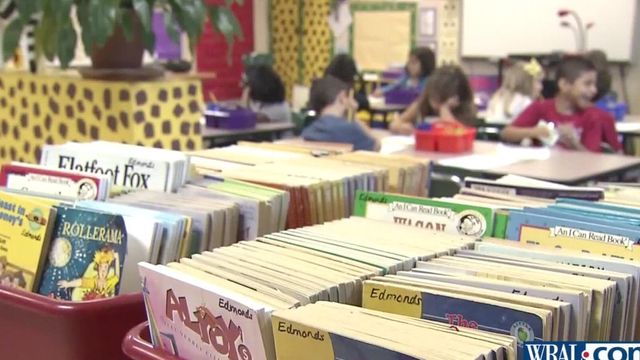House throws DPI's Istation pick for a loop
Update July 24, 2019 — 12:36 p.m.
The Senate voted 23-19 not to concur with the Read to Achieve legislation that includes the amendment that would let districts choose a literacy diagnostic assessment tool other than Istation. The bill will now go to a conference committee to see if House and Senate members can work out a compromise. See article on House debate below.
The House threw a wrinkle into the debate over the state’s literacy assessment pick when it passed an amendment Monday night to a Senate Read to Achieve reform bill that could complicate the Department of Public Instruction’s plan to role out Istation across the state.
Rep. Graig Meyer, D-Orange, put forth the amendment, which would allow local school districts to choose their own reading diagnostic assessments. There is a question at this point whether districts would be able to use state funds or not if they chose an assessment other than Istation.
The amendment reads: "Within funds available, a local board of education may select different assessments for these purposes."
Meyer said that the line "within funds available" leaves it open to interpretation if those funds would include state money or only local funding. If districts were limited to local funding alone, this could put districts with less local money at a disadvantage if they wanted to stick with mCLASS.
The bill, with Meyer’s amendment, now has to go back before the Senate.
Critics of DPI's move to Istation say Superintendent of Public Instruction Mark Johnson overlooked the recommendation of an advisory committee to stick with mCLASS. Johnson and others say the procurement process was perfectly legal and that the best tool for the state’s needs was chosen.
Meyer referenced the controversy but said the bill has nothing to do with the procurement process for Istation. Rather, he said he is simply trying to give districts an option if they want to go a different way.
“All this amendment would do is give flexibility to the local district,” he said.
Rep. Craig Horn, R-Union, acknowledged the “turmoil” surrounding Istation but fought Meyer’s amendment, saying it is necessary for public schools to have a uniform reading diagnostic.
“I think it’s important to note that when you’re trying to do assessments, you’re trying to not only determine the progress of a student, but the progress of a teacher, a school, and a school district,” Horn said.
Meyer countered that his bill would do nothing to change the assessments that actually allow the state to compare performance across districts and schools around North Carolina.
“The ability to still compare performance over the course of the year is not taken away," he said.
Since Johnson announced the pick of Istation, there has been an outcry from parents and teachers across the state who have expressed their concerns about the tool, including that it is not developmentally appropriate for young children and cannot effectively screen for dyslexia.
Amplify, the vendor that runs mCLASS, has been used by the state since Read to Achieve started in 2013. They have filed a formal protest of the state’s choice.
Following the passage of the amendment, the House passed the full bill in a 75-39 vote. The Excellent Public Schools Act of 2019 would require individual plans for struggling readers, DPI-approved reading summer camps, and expanded professional development for early literacy instruction, among other things.
The reform legislation was proposed following an analysis of the program, which was launched in 2013 in an effort to bolster reading gains in elementary schools. The Friday Institute for Educational Innovation, which performed the analysis, found the impact for students in the program one and two years out to be "null."
A presentation to the State Board in January on the Friday Institute report reads, “In practice, RtA appears to be 115 different pilots operating under a few common parameters.” The bill aims to add some unity to the way the program is implemented.














